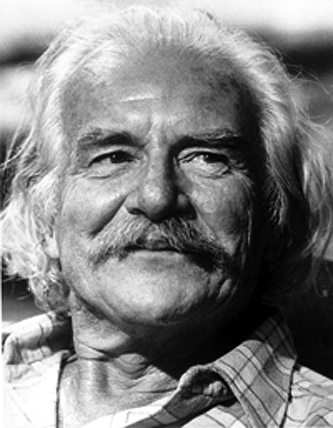Self Defense and ‘deadly force’
There is no guarantee that any use of force will be deadly or lethal.
Or won’t be. Many are killed in simple scuffles, in accidents
during simple chases.
First thing: Does a crook give up society’s concern for his safety
when he commits a crime?
Secondly, what are the victim’s first rights: to stop the crime, to retrieve
his goods? Those seem to also be his only legal concerns or obligations
during a criminal event.
Can he use what’s to hand to effect his rights without worrying
about the safety of the crook? —If he’s being jumped, can a victim grab
and brick and swing wildly? Or a knife? Or even a gun and quickly
shoot?
Thirdly, is it possible to determine when your own life is
at risk during a crime? How? And how long does this determination take?
You have no idea of a crook’s intention.
You have no idea of possible result, planned or unplanned.
Probably many killings, even by bad guys, are accidents, unintended, things went
wrong, didn’t mean to.
****
The Duty of Self Defense
I recall a fine book by Gary Kleck, “Point Black,”
the first definitive book on gun violence and public safety. His conclusion was
that some gun control reduces crime, but that its side effects are not known. He also
concludes that self-defense is clearly safe, needed, effective.
A pal of mine recently spouted the modern truism that a
gun in the house is most likely going to be used by
your kid or on your wife or be stolen and then used in
crime or would lead to undesired results in event of almost
any self-defense use attempt (escalation, miscalculation, etc.).
He said the stats bore this out. He also said that the best defense is to run.
I think that all these things are urban myth, not the slightest supported by facts.
But to the extent that any such myth is true, it seems like there might be
some support for such ‘weak citizen’ notions as he had, given the following:
when the household is an *unstable* one. Since this is a
growing situation, it’s clearly a concern. Heck, it
might even be a majority situation for all I know. But guns wouldn’t be
the root of the problem, the instability would be.
This whole stats thing has to be carefully watched.
They really only have meaning for actuarial firms.
They do NOT scientifically apply to individuals. Right?
Makes me think of the old saw about being safer on an
airliner than in bed or driving a car. It all depends!
What kind of drivers are involved (either offense or
defense) in 90% of accidents? I would say that the answer is ‘bad ones.’
We must even be careful of the concept of accident. Many things are quite
inevitable considering the factors. Most accidents do
not come out of the blue.
What becomes of car safety stats if you take youth,
elderly, priors, alcohol, risky conditions and inexpert driving
out of the picture? (Why not even add “expert defensive driving” to
the picture? Defensive drivers are rarely surprised or helpless when on
the road.)
Back to self defense: the ‘run’ defense is obvious, accepted, but not
compromised by further training or options. I don’t have to use my gun.
I can still run. Just because running will work
‘most’ of the time, why limit yourself to it when there
are other options you can add to the situation? Furthermore,
most of the time nowadays I am with my family. Run is likely not an option.
My pal also said that a cellphone is also a
more effective defense item than others. Sure…except when
*time* is a factor. Duh. And in an attack, what is the most important thing
to do? Act quickly, no? Again, what is wrong with a multiple-redundant config?
I’d like to get an emergency cell phone, sure.
It makes me wonder about people who give up their
responsibility due to the subtle, subliminal,
manipulated nudgings behind the misuse of statistics. Actually, they probably
are ignorant of any real stats. They give up their duties due to cultural forces
that encourage them to, that support their laziness.
The question is: How will you defend yourself in a violent era?
Obviously, I hope to never need any of my defense tools. Does my having them
ready and knowing how to use them imply any untoward
miscalculation? My house will probably not burn down.
I will have a fire extinguisher anyway and it will not
reflect badly on me. It would be best if I were to take
a fire-fighting class. Same with CPR. Having a gun, knife,
or self-defense training of any type does not indicate
any violence or untoward manner in the defender that I can see.
I suppose one doesn’t have an obligation to protect against an
unlikely threat. No need for paranoia, obviously.
But what is unlikely? And what is involved in acquiring
protection? Obviously no amount of protection guarantees anything.
Some protection involves risk of its own. Weigh it out. But throw
up your hands? It seems to me that multiple coverage and
training is worthwhile.
I’ve heard there is a book out there called something like ‘New American Cowardice,’
or the ‘Chickening of America.’ —Something to do with people giving up on their
duty to defend their vulnerable loved ones. That people in general are leaving their
protection up to the police, who in general are only there to follow up on crime, not to
prevent it.
Here’s my amateur defense wishlist, ranked approx by need (training presumed):
insurance–(health, disability, fire, life),
flashlight,
fire extinguisher,
dog,
defensive driving,
don’t own fancy house/car/possessions in the first place,
don’t go out on the town during wee hours,
avoid crowds,
avoid cities and bad neighborhoods
avoid bars you don’t know
realize the risks of traveling, especially to places you don’t know
smoke protection pillow inhaler,
whistle,
pepperspray,
cellphone (check to see where 911 works!),
security system/s,
weaponless techniques, martial arts,
baton, stick, bat
knife,
pistol, longarm,
cuffs/zipties,
kevlar
nightvision goggles
This list can be adapted to be used on-person, in-house, in-car, and of course the situation and
the extent of protection desired. Price varies! Here’s hoping you never need yours! : )




